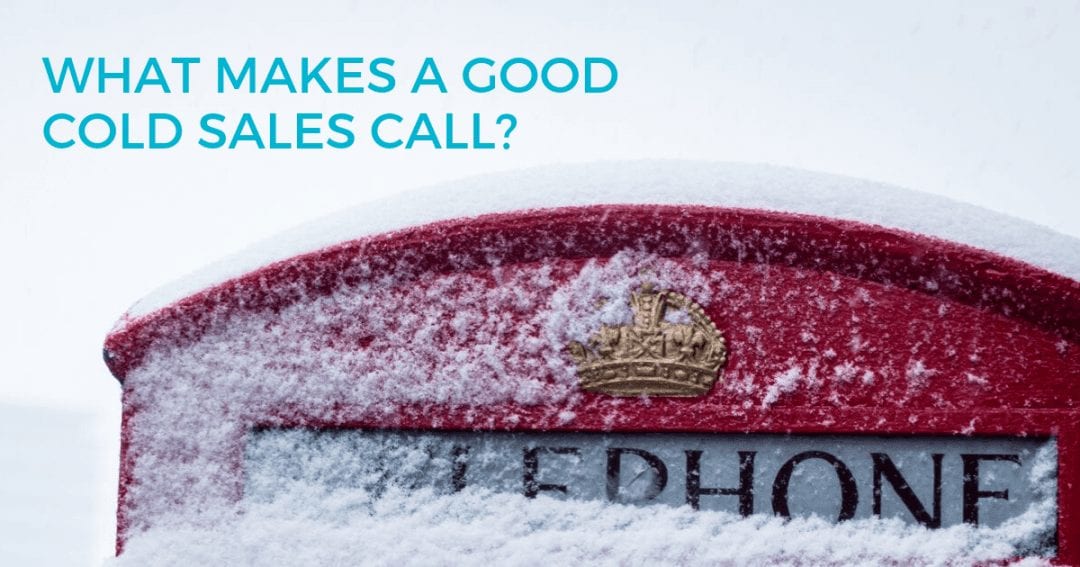For many people in business, the words ‘cold calling’ strike fear into the heart. It’s not just the feeling of lacking confidence in selling what you do – it’s also the time it takes and whether the returns are there. That’s why businesses often decide to hire someone to make cold calls on their behalf. Is this an option for you?
Why cold call at all?
In today’s world of social media campaigns and email marketing, is there still a place for cold calling? It may seem unlikely, but speaking to someone on the phone is still a powerful sales tool. Engage someone in a conversation and you find out more about them, their business, and their needs. That means you can tailor your proposition accordingly – and immediately – to help drive a sale.
But in order to do that successfully, you need to be good at cold calling. As any B2B telesales professional will tell you, calling is an art. You need to follow some clear steps and know how to handle a variety of situations in order to keep your prospect on the phone and get the result you want.
So, what makes a good sales call – and can you make one?
To begin with, you need to know what you want to achieve from the call. Is it an appointment? Is it a follow-up call? Is it permission to send more information or a dedicated offer or voucher? Is it just to collect data? You need to know what your target outcome is, so that you can prepare the right way.
Check your data
Cold calling requires a list of potential people to call. You should always ensure that you source your data within your obligations under the GDPR rules, and that any provider you use is also compliant. Using data for people who have not given their consent to be contacted by you leaves you open to potential fines or prosecution.
Write a script
The best sales calls use a script to guide the call. Some telemarketing sales companies advise sticking exactly to the script, whilst others use it as a guide to refer to, depending on what your prospect says or how they react to the call. Your script should be simple and clear, with plenty of questions that help you to see what your prospect is interested in and to give them confidence all the way through that they are in charge of the call and of their decisions.
Your script should include a number of response options for different situations – for example, if the prospect says they already use a system, or they are not intending to buy yet, or that they’d like you to send them some general information. Make sure there is an answer on your script for all the questions you know prospects ask – and a way to handle any unexpected questions.
Practice before you begin
Rather than going straight into calling a potential prospect, make sure you practice what you want to say. This gives you confidence in delivering your starting message and also helps to lodge the key points in your mind. That way, there will be fewer gaps and hesitations and your customer will hear a focused and clear pitch.
Use a positive tone of voice
We are all swayed by how people sound on the phone. Anyone offering and form of telesales services will tell you that a friendly, approachable and non-confrontational approach is far more likely to keep people on the line than a hard, aggressive sales pitch. In fact, sales professionals are often advised to smile when talking to customers because a smile can be heard in the voice and automatically makes people feel more relaxed.
Know what you want prospects to do next
If you can, always leave the conversation with an ‘assumptive close’. This is done by phrasing the end questions in a way that makes your prospect comfortable, but also keeps you in the driving seat. An example of this might be: “I’ll call you at 10 am on Friday to complete the application,” or “Shall we put a meeting in the diary, would you prefer 10 am or 3 pm on The 24th?”. Its much more difficult for people to say ‘no’ to these questions than if you just ask them when they are available. Sales telemarketing experts have a variety of statements that can be used in this way.
It’s easy to see from this list that planning and organising a cold calling campaign takes a lot of time and energy. And that’s why businesses are increasingly choosing to hire someone to make cold calls on their behalf. By working closely with an outsourced provider to ensure that there are clear messages, calls to actions and outcome goals, your business can benefit from a confident, professional telesales campaign that delivers results.
If you’re short on time or lack confidence with cold calling campaigns there are many solution providers available these days. If on the other hand you just need help with follow up or triage calls for the warm enquiries or leads that you have already received perhaps we can help. Feel free to call us on 0800 994 9016 or use our contact form in the menu above.

